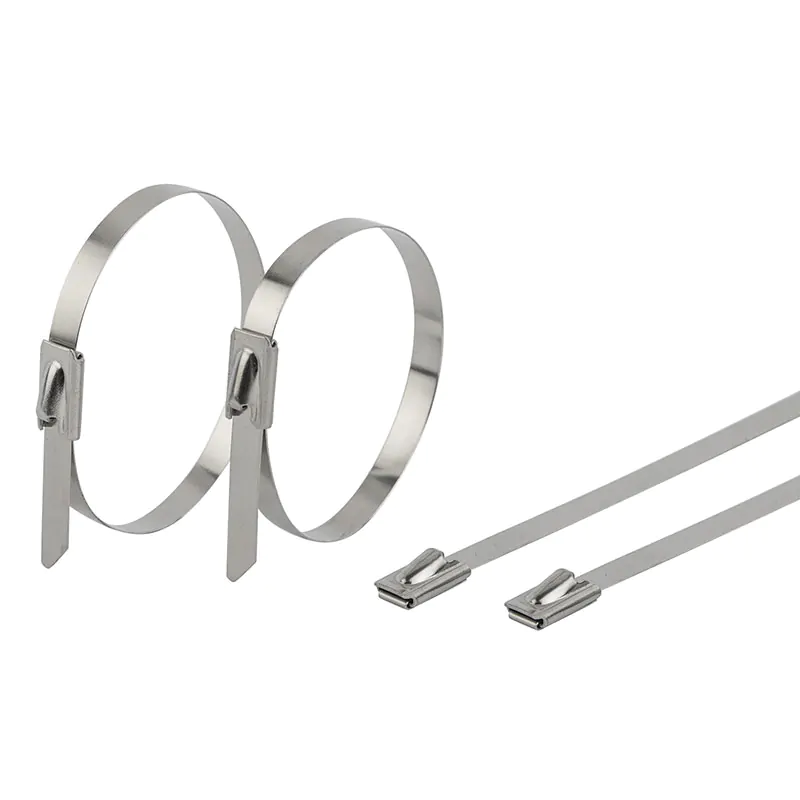Top Uses of Stainless Steel Cable Ties
Introduction
Stainless steel cable ties have become a trusted fastening solution across multiple industries. Their strength, durability, and resistance to harsh conditions make them superior to traditional nylon ties in many demanding applications. By understanding their uses and advantages, businesses can make smarter choices for long-term reliability and safety.
What are stainless steel cable ties
Stainless steel cable ties are fastening devices made from stainless steel grades such as 304 or 316. They are designed to secure cables, pipes, and components in environments where high mechanical strength and resistance to corrosion are required. Unlike plastic ties, they do not degrade in extreme heat, cold, or UV exposure, ensuring consistent performance even in outdoor or industrial conditions.
Top Uses of Stainless Steel Cable Ties
Electrical systems
In electrical installations, stainless steel cable ties are used to secure large bundles of wires, heavy power cables, and conduits. Their ability to resist heat makes them ideal for high-voltage environments.
Marine applications
In marine industries, these ties are essential due to their resistance to saltwater and corrosion. They are used on ships, offshore oil rigs, docks, and coastal power systems, where nylon ties would quickly fail.
Outdoor and harsh environments
Stainless steel ties withstand rain, wind, UV rays, and temperature fluctuations. This makes them suitable for securing solar panel cables, telecommunications infrastructure, and outdoor lighting systems.
Industrial facilities
Factories and production plants use them to secure hoses, pipes, and machinery components. Their fire resistance also makes them a safer choice compared to plastic ties.
Automotive and transportation
In vehicles, stainless steel cable ties are used for securing fuel lines, brake lines, and wiring harnesses. They are also common in trains and aircraft where vibration and safety standards are strict.
Construction and infrastructure
In construction, they play a vital role in fastening cables in bridges, tunnels, and high-rise buildings. Their durability ensures safety in long-term infrastructure projects.
Oil, gas, and chemical industries
In these industries, stainless steel cable ties are critical due to their resistance to chemicals, petroleum products, and high operating temperatures. They provide secure fastening in pipelines, refineries, and chemical plants.
Benefits of Stainless Steel Cable Ties
Corrosion resistance
They perform well in environments with moisture, salt, or chemicals, ensuring long-lasting performance.
High strength and durability
Stainless steel ties can hold heavy loads and maintain grip even under stress, making them ideal for industrial applications.
Temperature and UV resistance
They remain stable under extreme temperatures ranging from freezing cold to over 500°C, and they resist UV damage, unlike nylon ties.
Choosing the Right Stainless Steel Cable Ties
Coated vs uncoated options
Coated ties offer extra protection for delicate cables by preventing scratches, while uncoated ties are cost-effective for general heavy-duty fastening.
Sizes and strength grades
Available in various widths, lengths, and tensile strengths, users should select the size and grade that match their specific application.
Conclusion
Stainless steel cable ties are versatile solutions trusted in industries from marine to construction. They provide durability, safety, and long-lasting performance. For high-quality stainless steel cable ties and accessories, contact us to find the right solutions for your business needs.
FAQ
What are the main uses of stainless steel cable ties?
They are used in electrical, marine, construction, automotive, and industrial applications where durability is essential.
Where to use stainless steel cable ties?
Best suited for harsh environments including offshore, refineries, chemical plants, and outdoor projects.
Are stainless steel cable ties better than nylon cable ties?
Yes, they offer higher strength, heat, and corrosion resistance, though nylon ties are lighter and cheaper for indoor use.
Can stainless steel cable ties be reused?
Most are single-use, but some specialized releasable types are available.





